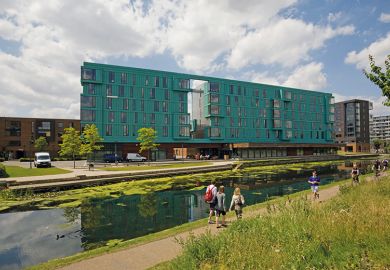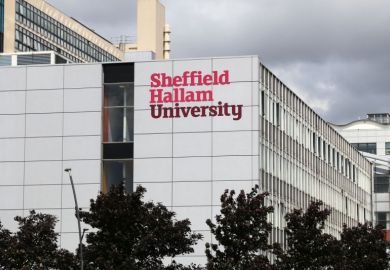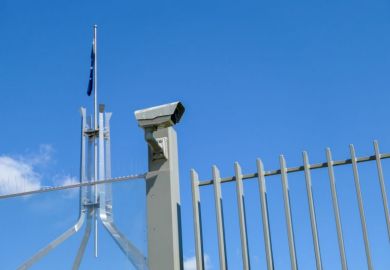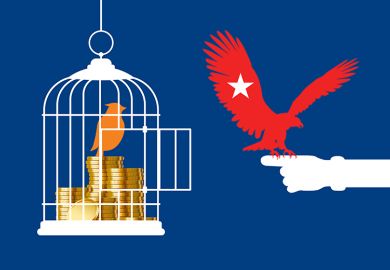More than 550 staff and students have accused the University of Edinburgh of intimidation and suppressing pro-Palestinian voices.
A letter has been published detailing a number of incidents of Edinburgh management cancelling room bookings for pro-Palestinian events, removing posters in staff offices, binning memorials, and threatening disciplinary action.
“We cannot tolerate the contradiction of an institution that claims to uphold freedom of expression, but actively works to shut down certain views and threaten those who continue to insist on speaking,” says the letter. “There cannot be a Palestine exception to freedom of expression.”
The signatories – which numbered 558 at the time of writing – say that senior managers have “adopted increasingly intimidatory behaviour” towards student groups that are supporting Palestine.
Students at Edinburgh have been calling for the university to divest from companies associated with the Israeli military, even starting a hunger strike earlier this year.
The letter records eight incidents of Palestinian solidarity posters being removed, four memorials to killed family members in Gaza being taken down or binned by security staff, rooms being cancelled at short notice, and two student groups being threatened with disciplinary action.
It also cites three instances of intimidation directed at staff and PhD students, one of which escalated into “racial abuse and harassment” from one staff member to another.
One staff member, who did not wish to be named, told Times Higher Education that the violations of freedom of speech were a “nervous reaction” from management to the broad consensus in support of Palestine.
“The violations reported in the letter are part of a trend of transformation of support for ceasefire and anti-genocide mobilisation on campus into a threat, into something that makes our community ‘unsafe’,” they said.
“The danger is to create a Palestine exception to free speech, discriminating on the basis of political beliefs.”
The letter calls on Edinburgh leaders to cease all intimidation of students mobilising and raising awareness on campus in solidarity with Palestine. Management must also acknowledge the role of the institution in “Israel’s ceaseless assault on Gaza”, it adds.
The news comes just days after the rector of the University of St Andrews, who was removed from its governing body after accusing Israel of genocide, was barred from attending graduation ceremonies because she has launched a legal action against the institution.
An Edinburgh spokeswoman said that freedom of expression was a “fundamental principle” at the institution. “However, should anyone act in a way that fosters a hostile environment or that makes others feel threatened – as has unfortunately been the case here – the university must take that seriously and deal with it in an appropriate and proportionate way,” she said.
The spokeswoman said that Edinburgh had offered support to those affected by conflict in the Middle East by offering sanctuary, scholarships, collaborative projects and community initiatives, and had followed its policies and procedures “at all times”.
“It is disappointing then that, rather than working together to do what we can to support those impacted by the violence, we have been met with ongoing and increasingly escalated disruption to our services, which impacts fellow students’ studies and learning as well as our staff,” she said.
“While we see protests and other activism as very much part of the life of a university, we make a call for more respectful and appropriate engagement from those who have raised concerns, and we would welcome a positive dialogue about how we might come together to support those who have been affected by these issues.”
Register to continue
Why register?
- Registration is free and only takes a moment
- Once registered, you can read 3 articles a month
- Sign up for our newsletter
Subscribe
Or subscribe for unlimited access to:
- Unlimited access to news, views, insights & reviews
- Digital editions
- Digital access to THE’s university and college rankings analysis
Already registered or a current subscriber?








